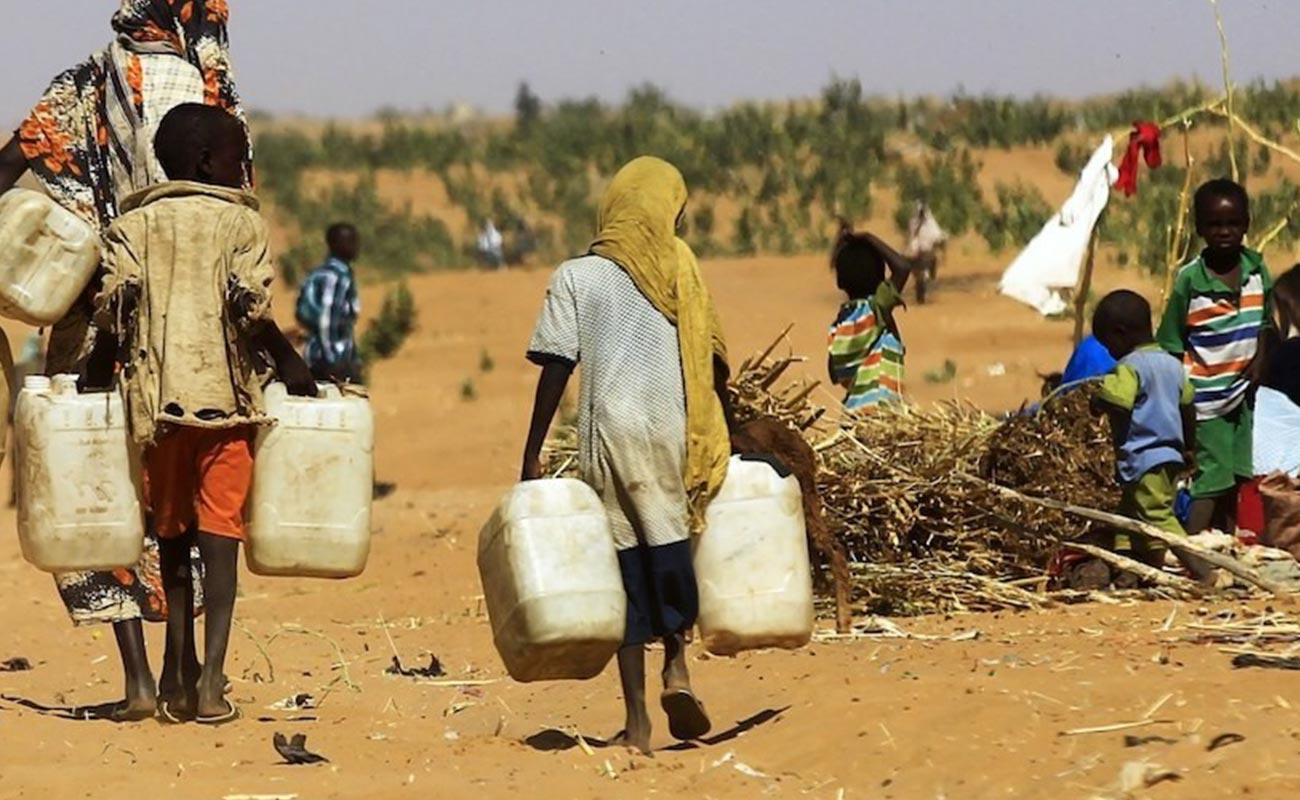
By Oluwaseun Taiwo
Climate change is no longer a distant threat to humans and our environment. It is a current reality that is profoundly affecting various regions around the globe. Africa faces unique and severe challenges due to its geographical, economic, and political contexts. Africa contributes the least to global greenhouse gas emissions but suffers the most from climate change impacts. The continent experiences extreme weather events, such as prolonged droughts, flood, intense rainfall, sea rise levels and increasing temperatures. These changes adversely affect agriculture, water resources, and livelihoods, leading to food insecurity and economic instability. The link between climate change and security in Africa is complex and multifaceted. Climate-induced resource scarcity often leads to competition over resources like water, land, and food, which can escalate into conflicts.
Climate change acts as a “threat multiplier”, worsening existing tensions and creating new security challenges. This environmental degradation has displaced millions of people, exacerbated poverty and led to the rise of insurgent groups like Boko Haram. While climate change is not the sole cause of conflict on the continent, it acts as a significant catalyst.
Floods, heatwaves, droughts, wildfires and cyclones are taking place at unprecedented and unpredictable rates, leaving utter devastation in their wake. Millions across our continent have been left facing food insecurity, water shortages, disease and extreme poverty. Nigeria experienced one of its worst flooding events in decades, affecting over 2 million people. The floods destroyed homes, farmlands, and infrastructure, leading to widespread displacement and a severe humanitarian crisis. The Horn of Africa, including countries like Somalia, Kenya, and Ethiopia, faced severe droughts that led to food and water shortages for millions of people. The drought exacerbated existing conflicts over scarce resources and forced many to migrate in search of better living conditions. Kenya experienced above-average rainfall during its March-April-May (MAM) long rains season that resulted in flooding and landslide from late March, throughout April 2024 and into early May. An estimated 291 people have been killed, 188 injured, and 75 missing, while 278,380 people (55,676 families) have been displaced and almost 412,763 (82,552 families) have been affected by heavy rains and floods. (according to the National Disaster Operations Centre NDOC). The Sahel region, stretching from Senegal to Sudan, has witnessed significant desertification, reducing the availability of arable land and water. This environmental degradation exacerbates food insecurity and forces communities to migrate in search of better living conditions.
Climate induced migration is a growing concern in Africa. As agricultural productivity declines and water sources dry up, people are forced to migrate in search of better living conditions. This movement often leads to urban overcrowding, competition over resources, and increased tensions in host communities. This internal migration leads to significant social and political upheaval, challenging the capacity of governments to maintain order and provide essential services.
There is a growing body of evidence linking climate change to the proliferation of terrorism and insurgency in Africa. Droughts, desertification, and resource scarcity create environments where extremist groups can thrive by exploiting grievances and recruiting individuals who have lost their livelihoods. Combating terrorism requires more than just military interventions. Addressing the root causes, including climate change and socio-economic vulnerabilities, is essential for achieving long-term peace and stability.
Efforts to address climate change in Africa are underway but face several limitations. Many African countries have developed national adaptation plans and are participating in international agreements like the Paris Agreement. However, these efforts are often hindered by limited financial resources, inadequate infrastructure, and a lack of technical expertise. For instance, while countries like Kenya and South Africa have made significant strides in renewable energy projects, the overall pace of transition to sustainable practices remains slow across the continent.
Addressing the intersection of climate change, peace, and security in Africa requires a multifaceted approach involving local, national, and international efforts. This would involve:
- Investing in climate-resilient infrastructure and agricultural practices to reduce vulnerability to climate impacts
- Developing robust early warning systems to predict and mitigate the effects of extreme weather events.
- Implementing sustainable development practices that balance economic growth with environmental conservation.
- Encouraging regional cooperation to manage shared resources and address transboundary climate impacts,
- Providing targeted support to communities most affected by climate change, including financial assistance, education, and healthcare.
The interplay between climate change, peace, and security in Africa is a critical issue that demands urgent attention. While the challenges are immense, there are also opportunities to create a more sustainable and secure future for the continent. By addressing the root causes of vulnerability and fostering resilience, Africa can mitigate the impacts of climate change and build a foundation for lasting peace and security. It is imperative that policymakers, researchers, and practitioners work collaboratively to develop and implement strategies that address the interconnected challenges of climate change and security. Only through a holistic and inclusive approach can Africa navigate the complexities of the climate-security nexus and ensure a prosperous future for its people.
